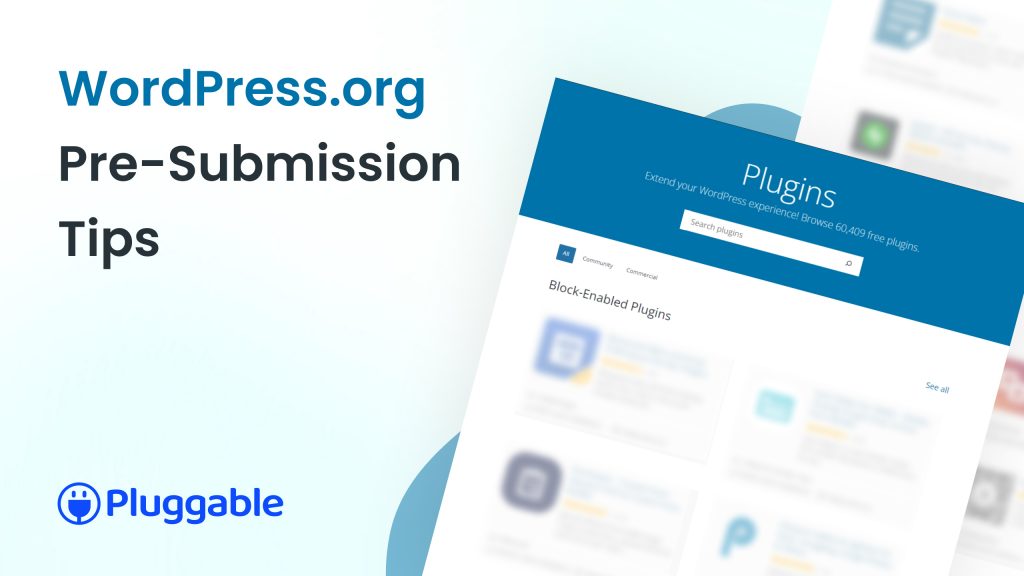WordPress is the most popular content management system (CMS) in the world, powering millions of websites. One of the reasons WordPress is so popular is the ability to extend its functionality through the use of plugins. Tens of thousands of WordPress plugins are available on the market, covering a wide range of functions and features. Because of this high competition, it’s tough to make a WordPress plugin successful, but not impossible. In this post, you will learn the best practices for making a WordPress plugin successful. From solving a specific problem to providing excellent support, these tips will help you create a plugin that stands out from the competition and meets the needs of WordPress users.
Why you should develop WordPress plugins
There are several reasons why you should develop WordPress plugins:
- To add custom features to a WordPress website that is not available in the core software.
- To extend the functionality of an existing plugin.
- To make it easier for other WordPress users to use a specific set of features on their own websites.
- To monetize their plugin by selling it to other WordPress users.
- To contribute to the WordPress community by sharing their plugin with others.
Developing WordPress plugins can be a great way to enhance the capabilities of a WordPress website, helping WordPress website owners, and can also be a rewarding and profitable venture for plugin developers.

Skills you need to make a WordPress Plugin successful
If you’re a developer who wants to make a WordPress plugin successful, there are a few key things you should keep in mind. To succeed in a WordPress plugin business, you will likely need a combination of technical skills, business skills, and personal skills. Here are some specific skills that might be useful:
- Technical skills: You will need to have a good understanding of WordPress and be able to develop custom plugins using PHP and other programming languages. You should also be familiar with web development technologies such as HTML, CSS, and JavaScript.
- Business skills: Starting a business requires a variety of business skills, including marketing, sales, financial planning, and project management. You will need to be able to identify and target the right market for your plugin, develop marketing and sales strategies, create financial projections, and manage the development and launch of your plugin.
- Personal skills: Being an entrepreneur requires a certain set of personal skills, including perseverance, adaptability, and the ability to handle stress and uncertainty. You should be able to work independently, be self-motivated, and be comfortable taking risks.
It’s important to be willing to learn and adapt as you start and grow your business. You will likely need to continuously improve your technical, business, and personal skills to keep up with changes in the market and the needs of your customers.

Tips for making a WordPress plugin successful
- Solve a specific problem or need: A successful plugin solves a specific problem or fulfills a particular need for WordPress users. Identify a problem or need that your plugin can address, and focus on creating a solution that addresses that problem or need in the best possible way.
- Keep it simple: Try to keep your plugin as simple as possible. Complex plugins can be difficult to use and may have more bugs, which can turn users off. Stick to the essential features and avoid cluttering the plugin with unnecessary options or functions.
- Make it user-friendly: Your plugin should be easy to use and understand, even for users who are not technical experts. Consider including documentation, tooltips, and other helpful resources to assist users. Consider using clear and concise language, and provide visual cues and prompts to help guide users through the plugin’s functions.
- Test thoroughly: Before releasing your plugin, be sure to thoroughly test it to ensure that it works as intended and is free of bugs. Test the plugin on a variety of different WordPress installations, with different themes and plugins active, to ensure that it is compatible and performs well in a variety of different environments.
- Regularly update and maintain your plugin: Keep your plugin up-to-date with the latest WordPress version and actively address any bugs or issues that are reported. This will help to keep your users happy and maintain a good reputation for your plugin. In addition to fixing bugs, consider adding new features or functionality to your plugin on a regular basis to keep it fresh and relevant for users.

- Promote your plugin: Make sure that people know about your plugin by promoting it on your website, social media, and relevant forums. Consider offering a free version of your plugin to help attract users and encourage them to try it out. You might also consider offering premium versions of your plugin with additional features for users who are willing to pay for them.
- Engage with your users: A successful plugin is one that has a strong community of users who are engaged with the plugin and with the developer. Encourage users to provide feedback and suggestions for improvements, and be responsive to their needs and concerns. Consider setting up a support forum or email address to allow users to get in touch with you and get help with any issues they may be having.
- Make your plugin easy to find: Ensure that your plugin is easy to discover by using relevant keywords in the plugin’s name and description, and by including screenshots and videos that showcase its functionality. Consider submitting your plugin to the WordPress plugin directory and other plugin marketplaces, as this will make it more visible to a wider audience of potential users.
- Follow WordPress coding standards: Adhere to the WordPress coding standards to ensure that your plugin is of high quality and will be compatible with the latest versions of WordPress. Following the coding standards will also make it easier for other developers to understand and work with your code, which can be beneficial if you ever decide to collaborate or open-source your plugin.
- Provide excellent support: Provide excellent support for your plugin to keep your users happy and help your plugin stand out from the competition. Respond to support requests in a timely manner, and be patient and helpful when addressing users’ issues or concerns.

Special tips to market a WordPress plugin
Here are some special tips for marketing a WordPress plugin:
- Create an outline of a business plan for a WordPress plugin business:-
– Executive Summary:
Provide an overview of your WordPress plugin business, including the problem it solves, the target market, and the unique features of your plugin.- Market Analysis:
Research and describe the WordPress plugin market, including the size of the market and the competition. Identify the target market for your plugin and describe their needs and pain points.
– Product Description:
Describe the features and benefits of your WordPress plugin. Explain how your plugin is unique and solves a specific problem for your target market.- Marketing Strategy:
Describe how you plan to market your plugin, including online marketing, social media marketing, content marketing, and any other strategies you will use. Outline your pricing strategy and any promotions or discounts you will offer.- Sales and Distribution: Describe how you plan to distribute your plugin, including through the WordPress plugin directory, your own website, and any other channels. Outline your sales process, including how you will follow up with leads and close sales.
– Financial Plan:
Project your financials for the next three to five years, including revenue, expenses, and profitability. Include assumptions about your business’s growth and your plugin’s adoption. This is a brief summary of the key points of the WordPress plugin business plan. Summarize the key points of your business plan and emphasize the potential success of your WordPress plugin business. It’s worth noting that a business plan is a living document and should be revised and updated as the business grows and changes.

- Create a website: A website is a great place to showcase your plugin and provide information about its features and benefits. Consider creating a website that includes a demo of your plugin in action, as well as detailed documentation and a list of features.
- Write blogs about your plugin: Blogging about your plugin can help to drive traffic to your website and attract potential users. Share updates about new features, share success stories from users, and provide helpful tips and resources related to your plugin.
- Utilize social media: Social media is a powerful tool for promoting your plugin. Share updates, blog posts, and other content related to your plugin on platforms like Twitter, Facebook, and LinkedIn to reach a wider audience. Consider setting up a dedicated social media account for your plugin to make it easier to share updates and engage with users.
- Submit your plugin to the WordPress plugin directory: The WordPress plugin directory is a great place to list your plugin and make it more visible to potential users. Submitting your plugin to the directory is free, and it can help to increase the visibility of your plugin and drive traffic to your website.
- Consider paid advertising: Paid advertising, such as Google AdWords or Facebook Ads, can be an effective way to reach a targeted audience and drive traffic to your plugin’s website. Consider using paid advertising to promote your plugin to specific demographics or users who are actively searching for solutions that your plugin provides.
- Offer a free version of your plugin: Offering a free version of your plugin can be a great way to attract users and encourage them to try out your plugin. You can then upsell users on a premium version of your plugin with additional features and support.
- Engage with your users: Building a strong community of users is key to the success of any plugin. Make an effort to engage with your users and encourage them to provide feedback and suggestions for improvement. This can help to build trust and loyalty among your user base, which can be beneficial in the long run.
Last Words
I hope these tips are helpful! By following these tips, you can increase the chances of your WordPress plugin becoming successful. Let us know if you have any questions or need further advice to make a WordPress plugin successful. Also, keep visiting the Pluggable blog regularly for more useful tips and strategies.




